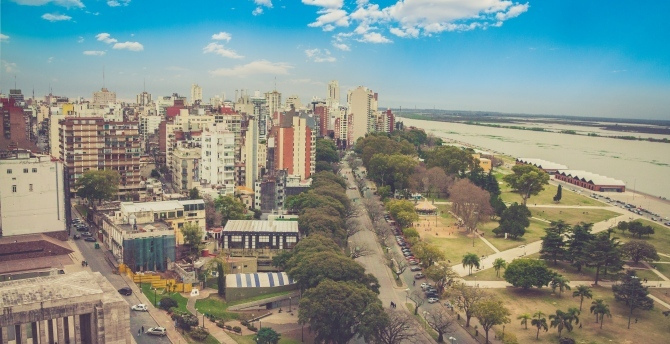
Constitutions that hold governments accountable to their people are vital to the defense of liberty in society. The constitution of the Argentinian province of Sante Fe maintains this accountability through rigid term limits. These are fundamental to the rule of law in Santa Fe because they serve as a stallwork against the centralization of power and expansion of the state. The Socialist Party in Argentina recently sought to change this through a constitutional amendment. However, thanks to the tireless efforts of Fundación Libertad, the Socialist Party’s attempts were thwarted.
Free-market think tank Fundación Libertad is celebrating a victory for limited government against the machine of an entire political party. On August 18, the Legislature of the Argentine Province of Sante Fe voted against reforms proposed by the Argentina Socialist Party that would have allowed for the election of governors to consecutive terms in the province of Santa Fe. Current law states that governors cannot be elected to consecutive terms as a way of preventing corruption and over-grown executive power.
“The Socialist Party tried to reform the Constitution … that has not been modified since 1962,” explained Fundación Libertad director of research Garret Edwards. “And while some of its contents might be dated, it includes one of the best clauses in any of the constitutions of Argentina: it does not allow a consecutive re-election of the governor. What the Socialist Party desired was to modify that article in order for them to be able to get their current governor re-elected. That would have conspired against republicanism, periodicity in public office and the rule of law, turning the people of Santa Fe into hostages of whichever political candidate the ruling party chooses.”
This win for rule of law and limited government represents two years of tireless effort by Fundación Libertad.
Fundación Libertad began its work against this proposal in 2016. Through a series of published articles and political papers the case against the proposal was made on traditional and social media.
“At Fundación Libertad we started moving the discussion as soon as the subject began appearing in political discourse, as far back as 2016,” continued Edwards. “We published a series of articles and made a series of appearances on mass media and social networks in order to expose the arguments on why that constitutional reform should not take place. We also got together with legislators to tell them why they should not vote for that reform.”
While no victory is permanent, Edwards is confident that this win has stopped the Socialist Party (in Santa Fe) for years to come.
“The Socialist Party was interested in passing this reform during 2018 because the next year is an election year, so they wanted to reap the benefits of said reform,” Edwards continued. “In that sense, we think that in due time they will try again, but the chances of a reform of that kind being discussed again in such short notice are slim.”